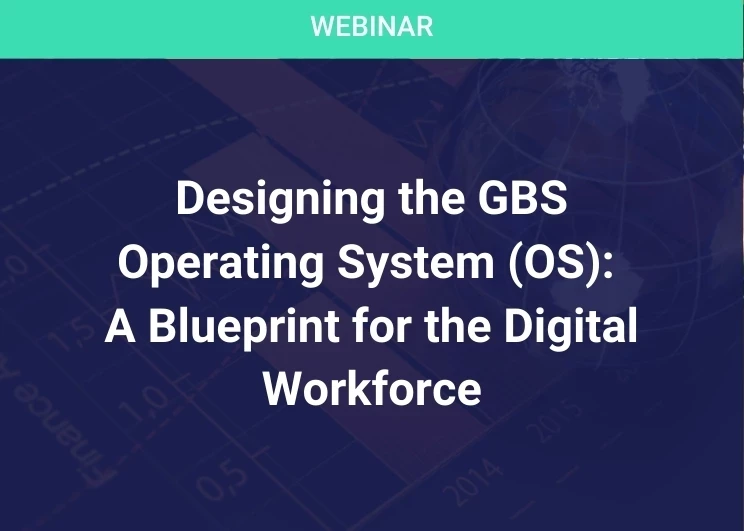Western Union chose skills and enthusiasm in Lithuania
Add bookmark
*View all content in Lithuania: Northern Europe Service Hub 2015 Series
SSON: Western Union is currently setting up a Shared Service operation center in Lithuania. Why did Western Union choose Lithuania as a location?
David Larkworthy: The reason that we chose Lithuania was pretty straightforward; our primary goal was to find a location where we could get the right calibre of staff with the right education levels and skills that we needed within this operation center that we’re setting up which we refer to as a center of excellence. So as we were looking at various options throughout Europe we were pretty happy with the education levels that we found in Lithuania and the availability of staff. Albeit it’s a relatively small labor pool, but it’s a high quality labor pool and certainly at the moment there is plenty of labor available for us. We also had to make sure we could get staff at the appropriate cost.
SSON: The center in Vilnius is the fourth global Western Union operation center in the world. How does this fit in with the overall organizational strategy?
DL: We have three sites at the moment. Two are in the Americas region - one in Costa Rica and one in Mexico City - and the third one is in our Asia Pacific zone, in Manila in the Philippines. So as we were looking at our strategy and how we were going to handle our work it became clear that we had a big gap in the EU and within the time zones in this part of the world. That along with the fact that we knew we would be having to deal with the Payment Services Directive which was just coming into play in Europe, so we felt it was important for us to establish an operation center within the EU which is one of the reasons that we’ve come to Lithuania.
The other point... and where that actually fits in with the overall strategy is that over time we’ll actually be doing work in this site not only from the European area but also from other parts of the world. So the whole notion here is that we can start to provide back up for our other sites and we can also work during normal business hours here. Whereas, we’re currently doing European work outside normal office hours in our other operating sites. This causes problems because, firstly, it’s not that easy sometimes finding people who are willing to work overnight and, secondly, there’s obviously a cost premium that you have to pay for that.
Finally, it’s I think important for us to be close to our customers and to understand our customers’ various cultures.
SSON: I’m sure when centers like these are set up there are a lot of change management and transition elements to consider. How do you go about doing that and setting up services like this smoothly?
DL: This is a massive change management project with a huge amount of complexity because we’re moving various types of work from countries all around the world into the site here. I suppose we’ve had quite a bit of experience with this with the other sites that we have already set up.
Essentially a lot of it is around having really strong and good communication. Work that is currently being done in one place is now moving and therefore we have to make sure our internal customers understand what’s happening and we manage their expectations.
Then we have external stakeholders that we need to make sure that we communicate with. So I think a lot of this is around experience. We have extremely robust project management processes. We create what we call a program management office when we’re doing any of these projects and that office has total control and a total view on what is going on both in the site where work is coming from as well as building up the site here within Lithuania.
SSON: Thanks for that overview David. Which customers will the center be serving and when will the center be fully implemented?
DL: This will be part of our global footprint so whilst the primary customer groupings will be from the European area we’ll also be picking up work from our Americas region as well. As this is a shared service site, most of the work carried out is really supporting our offices around the world, so we’re doing internal finance and settlement type work. We’re also providing support to our agent network around the world. So it’s primarily those groups that we’re supporting as opposed to our end consumers which will continue to be supported by our front office locations and we have close to over 430,000 of those around the world. Our customers will continue to be supported by those locations.
We made the announcements that we were going to come to Lithuania in May, earlier this year and we’ve actually created a temporary office here so that we can start the recruitment and initial training process. So we’ve had something in place here since August of this year but the completion of the actual full site and building, which we’ll be moving into will not happen until 2011 and we’re planning that to be sometime around end of Q1, early Q2.
SSON: Had you considered other Baltic or Eastern European locations when scouting for a location to host your operation center?
DL: Yes, we did look at a number of other locations. I don’t think it would be appropriate for me to discuss those. We were happy with the type of staff we could get here and we were happy with the support we received from Invest Lithuania and the government.
SSON: Bringing me onto my next question....how did Invest Lithuania help you in setting up your operation?
DL: Invest Lithuania basically provided 'on-the-ground' local support. Obviously we did some of our own homework, but when we first got in touch with Invest Lithuania they were really helpful in providing all the local details that we were looking for, be that things like the macro-economic environment, projections for the future, education, employment rates and salary costings.
Lithuania is not a very well known country in the United States , so I had to do a bit of a sales job with my stakeholders. But, Invest Lithuania did a great job of advertising the benefits of Lithuania and providing us with that communication support.
I think the other thing I would highlight which was really effective is they had a relationship manager and a separate team of people that were assigned to support us. So I thought that was especially effective and there was great collaboration to achieve a win-win result for all.
SSON: How long does it generally take from deciding on a location such as Lithuania to full implementation of services there?
DL: Frankly there are a few factors that would depend on, such as the type of work and offices you’re setting up. Typically getting appropriate real estate set up is what takes the longest and certainly that was something that could have been a bit of a challenge for us here because there are not a lot of large buildings of the type that we were looking for here in Vilnius.
As it turned out we ended up being able to find some temporary space very quickly and this has actually been the fastest I’ve been able to set something up in this type of environment. From the start to getting something going took us about 90 days, which I think is an extremely good result. We had a lot of support from the government and from Invest Lithuania in being able to get us to set up as fast as we did.
That essentially got us to a position where we could start bringing people in and start the process of moving work. The other thing that you have to obviously consider is you don’t want to have any disruption to your services. Typically there is a transition period of moving work from another country into here and that had to be staged. We stage the work coming in and the whole process from start to finish will probably be in the 9 to 12 months range from getting started to getting the site fully finished and operating at full capacity.
SSON: And what red tape issues or hoops do you find you generally have to go through to make it happen? Obviously this varies from whatever country you’re dealing with.
DL: From the very beginning of starting discussions with the Ministry of the Economy and Invest Lithuania there’s been a real business approach to this project. I found it quite refreshing when I was speaking to people that we didn’t really get into any conversations around red tape. I think the government here truly wanted to understand what they should be doing to actually improve things for companies coming in and I think they are in a bit of a learning process to this particular type of work. I think we’ve partnered very well in that respect and I saw very little red tape. Everything we came across, there was a real desire to achieve a mutually beneficial outcome. There was a desire on both sides to find solutions that met our needs without compromising their own.
Over the last few months since we’ve been getting much more into the detail we are running across some issues and we’re having some very constructive discussions with the government.
SSON: Having operations in several countries, WU has experience in managing the necessary compliance and tax that goes with each region. How do you go about doing that, David in somewhere like Lithuania compared to the Philippines?
DL: As Lithuania is part of the EU, you’ve got that overall EU umbrella which from the compliance and tax standpoint we’re clearly very familiar with and it moved through pretty smoothly. Western Union is I think recognized as a world leader in Anti Money Laundering (AML) compliance. For the type of business we’re in, it’s very important that we’re very compliant and we have a large group of people in the organization who help us manage through that whole compliance piece of our business. There is a fairly large group of compliance people that will actually be working here in the office in Lithuania. So we’ll be able to start building a bit of a center of excellence here, and it’s probably an expertise that hasn’t been here before.
Regarding tax, we have a pretty substantial tax department. We have some great local lawyers and regulatory experts that we work with here in Lithuania so they were able to share with us any local requirements that we needed to be aware of.
SSON: With a location in Lithuania - what is your view on labor arbitrage?
DL: Ten years ago Eastern European countries were extremely attractive in that regard and maybe they’re not quite so attractive now. Arbitrage is certainly something that companies look at but we really focus very heavily on the staff side of things. It doesn’t matter how cheap you can get labor if you can’t find people that can support the type of work you want to do. That clearly isn’t going to work so we put as number one staff quality as being our primary criteria.
Some of the other functions that we included which had different weightings associated with them were things like the regulatory and the environment, how easy it was to do business here, things like security and personal security. We work fairly late hours and we would be very concerned if we were in an area where our staff were travelling home late at night and were putting themselves to any form of risk. Things like transportation links; although this site doesn’t need to be in a transportation hub as such it is useful to be able to get in and out of here and we have a daily flight from Vienna which makes life for me relatively easy!
So I think all of those things have different weightings and we went through an extremely detailed process looking at all of those factors and weighted them appropriately and as a result of that we were very comfortable with choosing Lithuania, in particular Vilnius, as the site for our latest center of excellence.
SSON: Last year the UBS shared service center was acquired by Cognizant, would Western Union be open to having its shared service operations acquired?
DL: It’s probably a little early to be discussing this as we’ve just started here! I think we would be open to something like that but it would depend on several factors.
There are some functions we do within the company that are core competencies - AML compliance is an example. Another is being able to handle settlement and payment transfers in 200 countries around the world. We work with a very large group of agents in the international arena. These are well known organizations that carry our brand and service. So things that relate to those particular areas, I don’t think we would let somebody else handle that for us.
However, there are other functions that go on within the organization which are probably more of a transactional processing nature that may make sense for us to work with another party. In fact we already outsource a fairly large amount of our call center type of work to various partners around the world. We think about this as what’s a core competence for a company, those things we want to keep in-house and build up these centers of excellence and we feel that we’ll be able to be competitive with the type of companies you talked about.
For the other functions and processes that would not be in our core competence, we would be open to letting somebody get involved with that. The sort of companies I think would potentially prove to be a good partner could be companies like Accenture or CapGemini. Those types of organizations I think would possibly be interesting but no plans to do that at the moment.
SSON: What kind of return on investment do you expect to get from setting up a center like this in Lithuania?
DL: Setting up a site like we have here in Lithuania is a key piece in our overall drive to improve service, efficiency and improve our margins for our shareholders. We wouldn’t normally break down at a detailed level how much of that margin relates to what we’re doing here. But clearly it is certainly part of that equation along with a lot of other things that we’re doing within the organization to drive value for our shareholders, customers and employees. So I wouldn’t want to quote an actual number.
SSON: From experience how do you deal with attrition and what talent management plans if any will you be implementing to keep your staff at the center in Lithuania?
DL: We are creating what we are referring to as a centre of excellence in Lithuania and because I’ve spoken quite a lot already about the quality of staff – this is a double-edged sword if you will because you’re getting in high quality staff and if you’re unable to keep them happy then they’re going to move on.
So we have invested in a lot of training and development programs and our intention here is to create a career ladder for people who come into the company, which we hope will start off with some programs that we’re going to be building with local universities to bring in new graduates and then we can develop them through the company and in some cases there will be an opportunity for people to move to our other offices. In other cases they will be able to move around to different functions and all along we will be providing those individuals with personal development assistance so that they can meet their individual career plans. Our goal frankly is to become the best place to work in Lithuania. That’s the goal I’ve established for our human resource team so let’s see if we can meet that.
SSON: I wish you the best of luck, David.





















